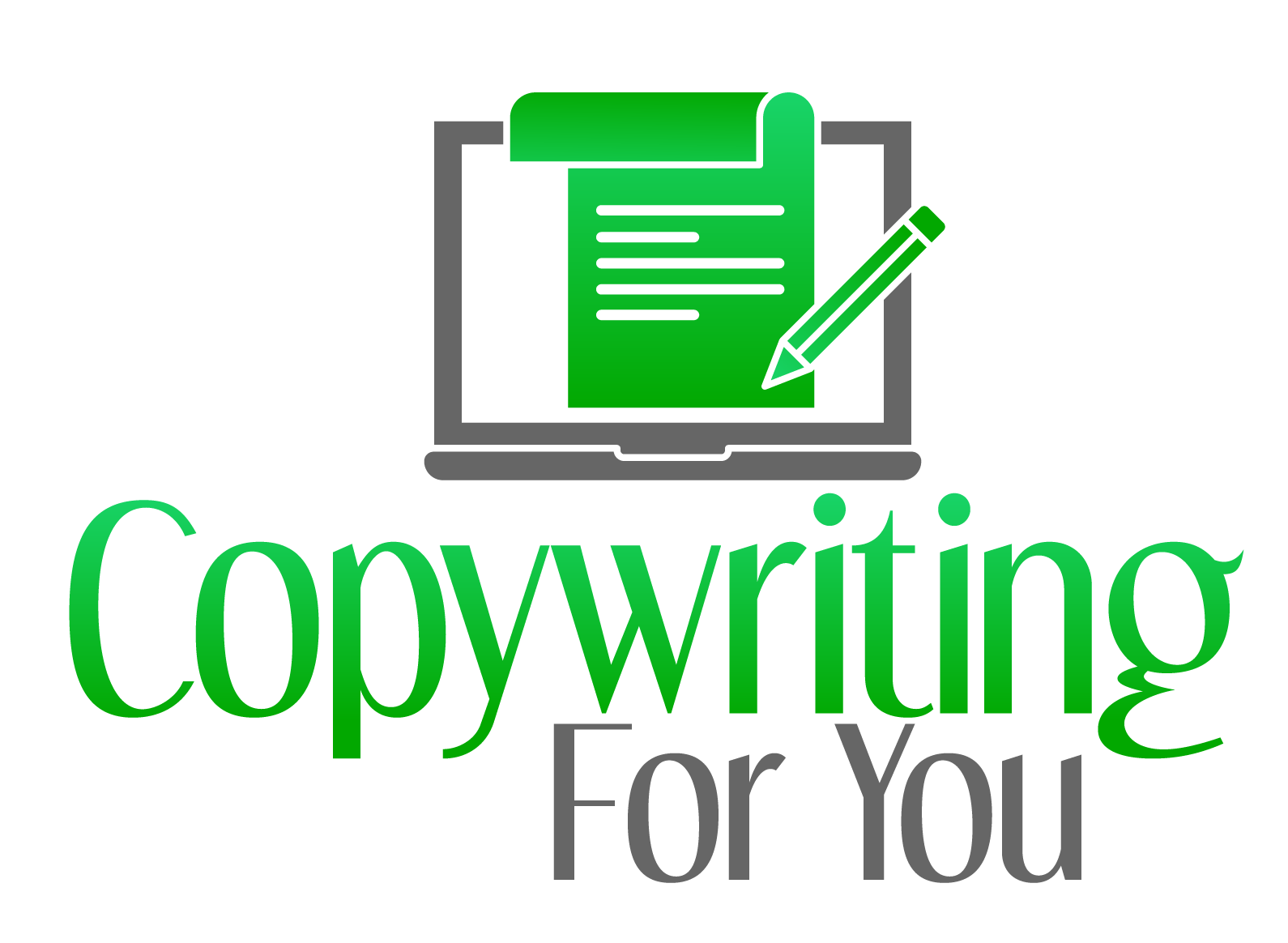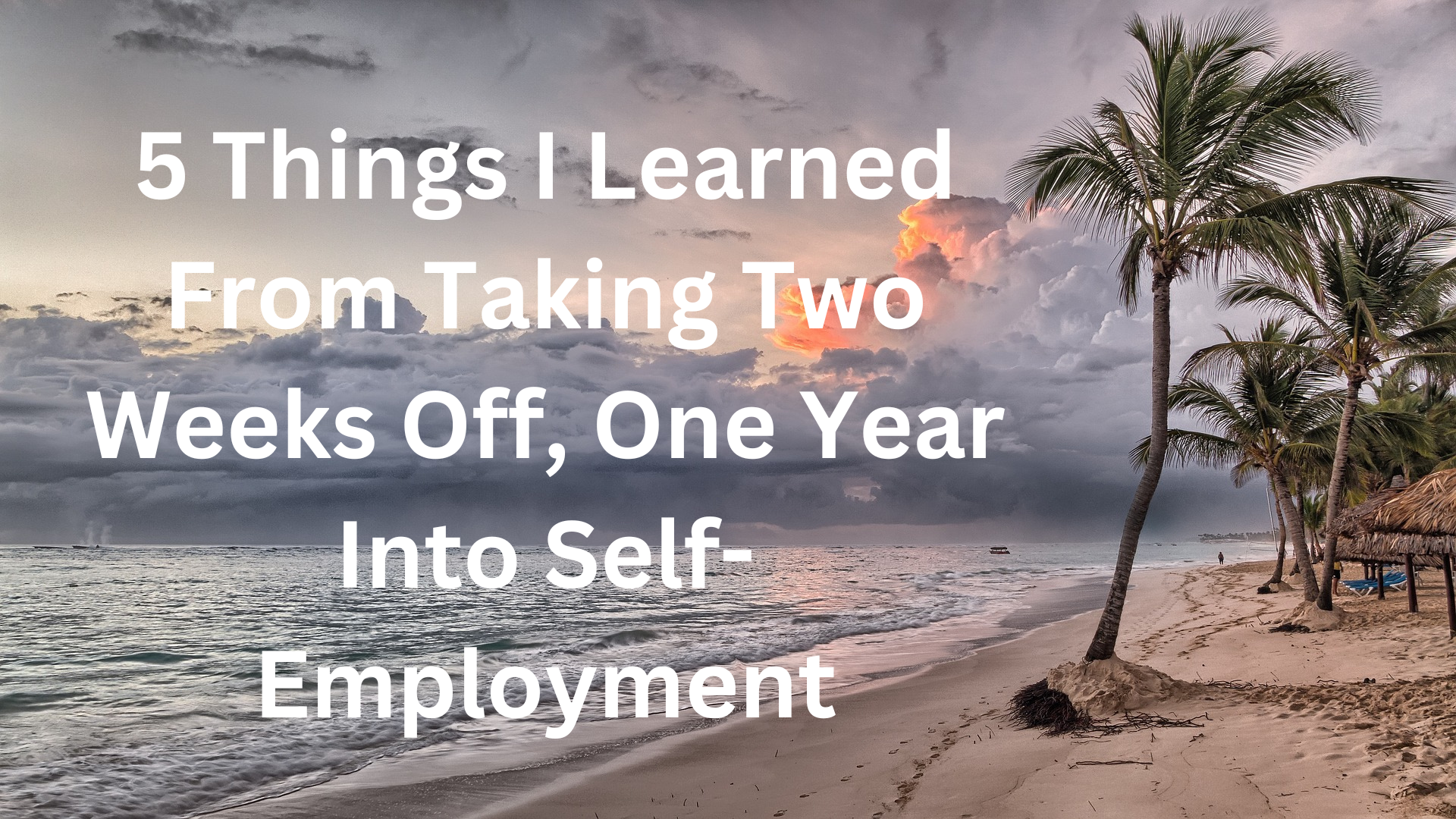
I know it’s been a bit since my last post, but for good reason! I took some time off. Yes, I’ve taken time off before since turning my side hustle into a full-time gig about a year ago, but I always had my laptop at the ready, just in case.
This time, I took time off, and though my laptop was present and in my laptop bag nearby, I didn’t take it out. And what happened? Nothing bad, that’s for sure. What happened was something so good that I just need to share!
Can You Take Time Off If You Are Self-Employed?
Taking time off when you’re self-employed can be a daunting prospect, especially if you’re reliant on active client work without the safety net of established passive income streams. As a freelance blogger and copywriter, my income is tied to my projects and clients. Unlike having a product to sell or earning from clicks, my earnings directly correlate to my active efforts on Upwork or with my direct clients.
Being in the early stages of my self-employment journey, the idea of an extended break can be intimidating. The constant hustle to meet client needs and build a thriving online presence for businesses keeps me occupied. However, in reflecting on my recent almost back-to-back two-week hiatus, I discovered that it is not only possible but also essential to take a step back.
While it requires meticulous planning, the benefits far outweigh the initial apprehensions. In this section, share what I learned from my recent experience taking time off when self-employed, sharing my own experiences and insights gained from navigating this aspect of the freelance life.
1. Prepare for the Income Gap with Strategic Invoicing
One crucial lesson from my self-employment journey is the power of strategic invoicing to bridge the income gap during planned breaks. Taking time off doesn’t have to mean pausing your earnings; with careful planning, you can ensure a steady flow of income even while you’re away. By completing client work ahead of time and sending out invoices before embarking on my two-week break, I experienced the satisfaction of payments rolling in. In contrast, I enjoyed quality time with my loved ones.
Proactively contacting clients a month before my departure allowed for a “frontloading” of projects. While it meant some intense workdays leading up to my break, the financial reward was worth it. This proactive approach not only ensured a financial cushion but also showcased the flexibility and adaptability of a freelance career. This strategy becomes even more potent for those utilizing platforms like Upwork, enabling you to maximize project completion before your departure.
2. My Clients Were Happy I Was Taking Time Away
Contrary to my initial concerns, the response from my clients when I communicated my extended absence was overwhelmingly positive. Taking a total of twelve days off for consecutive trips—seven days in Mexico with my family and five days on a cruise with my best friend—I worried about potential dissatisfaction from clients. To my surprise, they not only supported the front-loading strategy but also expressed genuine excitement for my well-deserved breaks.
The key revelation here is that delivering quality work builds a relationship of trust and loyalty. My clients agreed to the pre-planned workload and sent heartfelt well wishes, assuring me that they valued the quality of my work and were willing to wait for my return. This experience highlighted the significance of client relationships based on professionalism, communication, and consistently delivering high-quality results.
3. I Needed a Break More than I Realized
Despite my deep love for what I do, it took decades to become my own boss, using my sales and marketing expertise to craft content for businesses. I revel in the freedom of dictating my schedule and working diligently on projects that fuel my passion. The reality, however, is that being self-employed often means exceeding the conventional eight-hour workday.
Reflecting on an old Gallup article that revealed nearly half of self-employed Americans work more than 44 hours per week, the prevalence of extended work hours is not a recent phenomenon. In an era where technology facilitates constant connectivity, my laptop and phone accompany me everywhere, blurring the lines between work and personal time. The importance of recognizing the need for a break became evident during my time away.
Despite my love for my work, fatigue had subtly set in. The break was a revelation—I needed to refresh my mind, body, and spirit. It affirmed that taking a step back, even when you’re passionate about your work, is essential for rejuvenation. The return, enriched with newfound energy, invariably leads to better and more inspired work.
4. I Started Reading Again
Rediscovering my love for reading became a poignant aspect of my time away, marking a personal triumph over past challenges. During the tumultuous period of my previous marriage’s decline, self-help books provided solace, aiding in the protection of my mental health. However, the aftermath of divorce rendered traditional reading a source of triggers, prompting a hiatus from the books I once cherished.
On the cruise with my best friend, armed with two audiobooks, I found myself unexpectedly drawn to an airport bookstore. There, fate seemed to intervene as I stumbled upon “The Writing Retreat” by Julia Bartz. Surprisingly, I devoured nearly the entire book during our layover, a feat I hadn’t accomplished in years.
The revelation came as I realized that my newfound ability to immerse myself in a book without triggering anxieties directly resulted from the profound rest and reflection afforded by my time away. Reconnecting with the joys of life—the success of my adult children, a beautiful home, and the love of my doting husband—ushered in genuine happiness.
The break provided the clarity needed to appreciate the positive aspects of my life, allowing me to once again indulge in the simple pleasure of flipping through the pages of a book.
5. I Couldn’t Wait to Get Back to It
Returning to work with genuine excitement marked the final and perhaps most surprising lesson from my two-week hiatus. As a Minnesota native, I’m accustomed to enduring harsh winters, making the seven days in the Mexican sun and a five-day cruise from Tampa, Florida, a blissful escape. The rest, relaxation, and abundant vitamin D were transformative for my well-being.
While a hint of stress lingered initially, it gradually dissipated as the joy of my time away took hold. Even with a brief return home to power through some backlogged tasks, the overall sense of relaxation lingered. The realization hit me on the cruise’s final days—I couldn’t wait to get back to work.
This genuine enthusiasm for returning to what I love sets me apart from the statistics revealed in a 2022 Gallup report on global workplace engagement, where only 21% of employees feel engaged at work. For me, the love for my work makes returning from vacation a source of excitement rather than dread.
Am I Ready for More Time Off?
Reflecting on the invigorating experience of taking two weeks away from my self-employed hustle, the “now what” carries a sense of contentment and anticipation. While thoughts of upcoming summer adventures and our annual trip linger, the profound rest and relaxation have instilled a deep comfort in my current surroundings—whether on my couch or in my cozy office chair, typing away.
Entering 2024, I’m not just thinking about planning the next vacation; I’m genuinely excited to dive back into my work. The break has left me feeling refreshed and ready for the challenges and opportunities that lie ahead. As I contemplate the “now what,” the answer echoes with contentment and optimism. The journey ahead is one of continuous growth and upward trajectory, a testament to the benefits of taking the time to step back and savor the present moment.

